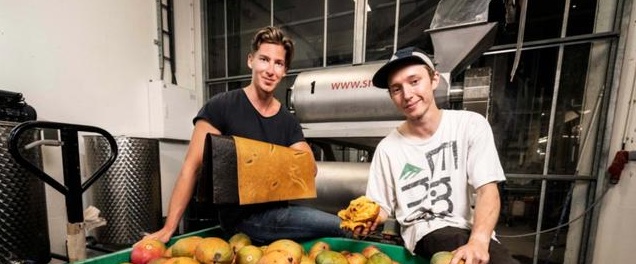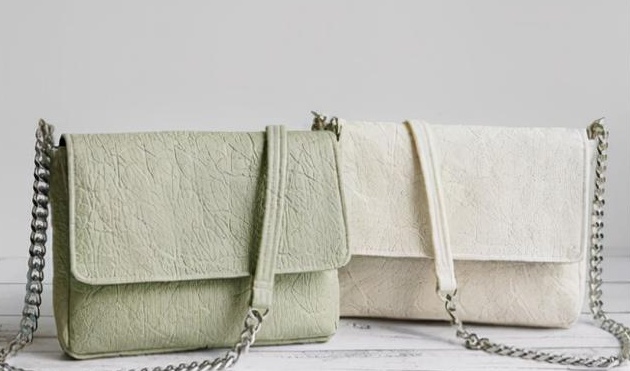Dutch Startup Fruitleather: Making vegan Leather from Discarded Mango
Apr 14 , 2022
As the European mango trading center, the Netherlands imports more than half of the total imports in Europe every year, but due to logistics or storage environment and other reasons, many damaged and rotten mangoes are directly discarded, which not only causes waste, but also has a negative impact on the environment.
Fruit leather, a Dutch start-up founded in 2015, has come up with a new way to solve the problem: recycle these discarded mangoes into "vegan leather".
Turn waste into treasure:
Turn abandoned mangoes into vegan leather.
Fruit leather was co-founded by Hugo de Boon and Koen Meerkerk, two college classmates, both graduated from Rotterdam Willem de Kooning academy interior design major.
When they were in college, Hugo de Boon and Koen Meerkerk were very keen to discuss topics related to circular economy and how to create value with things that were defined as "useless".

Image above from left to right: Koen Meerkerk and Hugo de Boon.
They noted that the Food and Agriculture Organization of the United Nations (FAO) had released a set of data: the weight of waste food worldwide is about 1.3 billion tons each year, equivalent to 1/3 of total food production.
Forty-five percent of the fruits produced by farmers around the world for consumption will eventually be discarded. According to this proportion, about 30 percent of the world's agricultural land is used to produce fruits that will eventually be discarded.

In addition to causing a waste of land resources, abandoned fruit will also cause a series of environmental problems. According to statistics, in some developed countries, 10% of greenhouse gases are emitted in the process of producing these fruits that will eventually be discarded.
They also learned that in the fashion industry, the use of animal leather also has a significant negative impact on the environment. According to data from PETA, more than 1 billion animals are slaughtered worldwide each year for their furs, which produce about 650 million kilograms of carbon dioxide when cleaned and made into leather.
As a result, Hugo de Boon and Koen Meerkerk, with a professional background in design, began to wonder whether waste food could be turned into a treasure.
With this in mind, the two moved to Bluecity, a circular economy business incubator in Rotterdam, where they began their own experiments. after many experiments, they thought that the leather made from mango had good softness and toughness, and as the largest mango trader in Europe, the Netherlands discarded a large number of mangoes every year, so they decided that Fruit leather's first product was vegan leather made from mango.
At present, Fruit leather has reached a long-term partnership with Total Exotics, a local mango importer in the Netherlands, which imports 6 million kilograms of mangoes a year, but about 1500 mangoes are thrown away every week during quality control.
"in the past, I wondered if there was a new recycling method to keep these mangoes from being discarded, but now it seems to be the best choice to hand it over to Fruit leather," said Anneke Bouman, manager of Total Exotics's quality assurance and sustainability department.
The price of Fruit leather leather made of mango now ranges from 49.99 euros to 60 euros, depending on the size of the leather. The price of 56 x 38 cm leather is 49.99 euros, while 60 x 40 cm leather is 60 euros.
Hugo de Boon said that their goal is not to compete with the traditional leather industry, "We set up Fruitleather not to completely replace traditional leather, but to provide an additional alternative to the industry."



